- Home
- Andy McNab
Dead Centre ns-14 Page 12
Dead Centre ns-14 Read online
Page 12
I gave Jan my number once she had worked out how to access her contacts file. ‘This is my personal phone. I don’t really like keeping anything on it. Not even texts or anything. You never know who might sneak a look while you’re busy making yourself beautiful. That wanker BB would have been straight in there. He’d probably send texts from it to all his mates, to tell them what he was up to. If he had any mates.’ She gave me hers. An O2 number. I tapped it in.
‘Whenever you’re in town, Nick …’ She gave me a hug, phone still gripped in her hand. Then she switched it off. ‘I hate these things.’
We parted with a quick kiss on the cheek. Her soapie mates were now getting chatted up by another group of guys with well-clipped hair and Friday-night shirts. She selected the one with a very tight blue-striped short-sleeved number, and was soon in the swing of things. Banter wasn’t necessarily his strong suit, but he was keen to give her the full benefit of his tribal tats. He flexed his biceps by gripping his Bud bottle like it was the last one on earth.
10
I worked my way out of the bar and turned right along Widemarsh Street towards the Green Dragon.
Ant was the taller of my new pair of comedians, but seemed to think lighting a cigarette in the doorway of Marks & Sparks would make him invisible. He was still in his favourite overcoat. I didn’t bother looking for Dec and his nondescript haircut. He’d be staking out the other side of the bar in case I chucked a left when I came out. The car they’d followed me in to Hereford was a C-class Merc, in case they had to keep up with the 911. But it wasn’t in sight now. They would have seen mine in the car park. They’d assume I wasn’t going anywhere for a moment or two.
They hadn’t been on my flight, and the next one was four hours later. But they’d managed to pick me up outside my apartment after my meeting with Jules and followed me to Hereford. Frank really did take that knowledge-is-power shit seriously. He couldn’t just let me get on with the job.
I left Marks & Sparks behind me and followed the road round to the right, then went left onto Broad Street. I got online as I drove, checking for the default PIN code to access message services on O2 numbers. I found it on Google.
Once back in the hotel, I used the almost redundant payphone and called Jan’s mobile. It was still switched off. If she’d answered it, I would simply have said, ‘Hi,’ and tried again in the middle of the night.
I pressed the star button as soon as it went to voicemail. I was welcomed warmly to the O2 messaging service. I tapped in the 8705 PIN code Google had given me, and was inside in less time than it had taken to defeat the electronic lock at the Ararat Park Hyatt.
An infuriatingly cheerful female pre-record told me that there were three new messages and twenty-four old ones. The voice prompt then invited me to press 2 to listen to them.
The first was three days old: a pissed-off Jock, honking that none of his calls had been returned on either of her phones and that he had found this mobile in her bag — so she could fuck right off, and by the way, he also wanted his iPod speakers back. The next one was the same guy, a day earlier. He’d just got back to H and he’d love to meet up and, yes, he knew about this number but he had missed her.
I cancelled them. I didn’t want her to know they’d been accessed. This was the method a few journos had been using to hack into mobiles belonging to celebrities, royals and politicians over the last couple of years. And if you couldn’t be bothered to change your PIN, what grounds did you have to complain?
The next message was four days old. ‘Hello, Janet. Greetings. My name is Nadif. You must call me.’ The voice was deep, slow and resonant. ‘This is very important. Your sister, her child and her friend … they are in great danger. I can help you. Please, you must call me.’
I reached for the stub of hotel pencil on the bedside cabinet, scribbled the mobile number on the pad, and cancelled this message too.
Then I called Nadif.
11
The phone rang for ages. I was on the point of giving up when the deep voice suddenly answered. He was guarded, probably because I’d withheld my number. ‘Hello …’
I didn’t fuck about. ‘You left a message. I’m calling about Tracy — Janet’s sister. My name is Nick. Are they safe?’ I kept my tone even and respectful, not wanting to spark him up.
His, too, was measured. ‘I’m trying so hard to keep them alive. Why have you taken so long? Who are you?’
‘I’m a friend of Tracy’s. A very old friend. Is her little boy safe?’
‘They’re all safe. But they won’t be safe for long. Only I can save them. But I need your help. Please, you must help me. Will you help me?’
The world is full of chancers who pick up their phones after a kidnap, claiming to be the only ones who can get the hostage back. They collect a deposit, and then they’re never heard from again. I needed to know that Nadif wasn’t one of them.
‘Nadif, I want to help you, but before we can do anything I need proof that they’re alive. Can you provide that? Can you prove to me they’re alive?’
‘Yes, of course. But the people who are holding them, they demand three million dollars. Do you have that? Can you bring them this money? If you bring this money, I can help you get them released. Do you have this money?’
My tone changed from positive and obliging to scared and concerned. ‘No. I mean, yes, maybe — maybe, maybe. I don’t know. I’m not rich — we’re not rich people. But we will get the money together. I will try everything. I will do everything possible to get that money. I will get the money somehow. But, please, you must prove to me first that they’re alive. Can I talk to them? Please?’
There was a pause.
‘Nick, do you really, really want them to come home?’
‘Yes, I do. I really do. I’ll do anything I can to get them back.’
‘That is very good, Nick, because only I can keep them from being killed in a very terrible way. Remember that, my friend. I will prove that they’re alive. You will come to me tomorrow. You will do that, yes?’
I took up the pencil once more as he gave me his address in Bristol.
‘Listen, I’m less than two hours away. Why don’t I come now? We can start the process. Please, Nadif, I don’t know what we’d do without you.’
He agreed, and I powered down the phone. I grabbed my keys and started down to the car park.
The one thing you’ve got to do with these people is be subservient. You must show them at all times that they hold all the cards. Right now it wasn’t that difficult.
12
I drove past Ascari’s.
Maybe it would have made sense to sell the 911 a month ago, but I couldn’t bring myself to do it. I’d enjoyed fucking off the salesman when I bought it, and I still enjoyed the mere fact that I owned it. I’d wandered into the showroom in my stinking trainers and running kit and the fucker had sneered when I asked how much it cost. I’d pulled out my wallet and asked if he was OK with cash.
And, anyway, I wasn’t too sure what was going to happen with me and Anna. Maybe she’d seen the light and was ready to fuck me off already. After all, I was punching above my weight and she wasn’t in any rush to get back to Moscow. I wasn’t too sure how I felt about that, so I immediately told myself: Fuck it, so what? I didn’t own the woman.
But going back to a life of Saturday mornings on my own in a café? I suddenly realized I was too old for that shit.
At this time of night there wasn’t much traffic once I’d got out of town, especially on the route I was taking. Rather than use the main drags and the motorway, I was going to go via Pontralis, into Wales, and then on B roads to Chepstow, before crossing back into England on the Severn Bridge.
I knew I’d be able to get my foot down this way. The speed cameras had sprung up like dandelions over the last few years, but I had a detector. I could do this route blindfolded. I used to fast-drive it day in, day out, in another lifetime. Bristol was used as a training ground for covert operations in Northern
Ireland. The little B roads were where we’d practised our fast-driving skills. Sometimes you could make it door-to-door in under an hour.
The roads were narrow and bendy, with high hedgerows each side. Ant and Dec were going to have their work cut out to keep up, though the geography would help them. Each time I went up a hill, they’d be able to see my full beams.
Now and again I saw headlights behind me as I hit a long stretch of straight. I didn’t blame Frank. I’d probably have had someone following me as well.
13
I reached the Chepstow ring road, and then the bridge approach. The traffic was a little heavier as I re-entered England for the princely toll of £5.70. I took the motorway to Bristol and headed for the town centre instead of Nadif’s address. I parked on the second floor of an NCP and took the stairs.
Leaving the car there had nothing to do with good antisurveillance skills. I just didn’t want to get Nadif all sparked up. A 911 outside his front door would say all the wrong things about the size of Tracy’s bank account. I also didn’t want to come out and find the thing up on bricks. If Frank’s boys were about, they’d get the message as soon as they saw where I was going.
Bristol is a bit special on Friday and Saturday nights. It’s a well-known venue for lads on the piss and, increasingly, girls keeping in step. My route to the ATM became a giant pavement slalom as I dodged and wove through discarded kebab wrappers and the odd splash of vomit. I maxed out for the day on my three cards and soon had fifteen hundred pounds in my jeans pocket.
A taxi rank served the Broadmead Shopping Centre and cinema. I joined the queue. Four or five groups of students were ahead of me. The girls’ skirts weren’t long enough to cover their goosebumps, and they weren’t carrying coats because they knew they’d get nicked in the bars and clubs.
When my turn came I jumped into an old Renault people-carrier. The sickly aroma of vanilla air-freshener did nothing to disguise the smell of the roll-up the driver had blatantly just finished. He was in his mid-fifties, white hair greased back. He didn’t need gel; not washing it for a month did the job just fine. His faded tattoos and big rough hands told me that, if it wasn’t for the recession, he would have been more at home on a building site.
‘Easton, mate. I’m after Barratt Street in Easton.’
‘It’s an extra fiver for a drop-off in little Mogadishu, boy.’
It was far enough from the centre of town to be a good fare, but even beneath the deep West Country burr I could tell he wasn’t too pleased.
We used Bristol for training because it was close to Hereford and as segregated as Belfast and Derry. The safe areas were very safe; the rough areas were very rough. But unlike in the Province, the segregation wasn’t religious. It was financial. A lot of places were in shit state. The local housing authorities used them as dumping grounds for the poor and dis advantaged. In the 1980s the St Paul’s area, near the city centre, became notorious for riots and drug-dealing. It all boiled down to lack of opportunity.
Easton had become a Somali ghetto, and it was no accident. Bristol lads were the original slavers, and for hundreds of years the dockland was populated by Africans, Indians and Chinese. Some of the graves in the local cemeteries contain the bodies of black businessmen, and they date back to the first half of the eighteenth century.
My iPhone vibrated.
‘I need to stop at a cashpoint, mate.’
He grunted something indecipherable in carrot-cruncher code but pulled over outside a building society. I added another fifteen hundred to the wad I’d taken out the other side of midnight.
14
The kebab wrappers and splashes of vomit gradually retreated as we moved into a more residential landscape. Every traffic light was red, but we were soon surrounded by terraced houses and little bay windows. They might have been nice and shiny when they were built during the Boer War, but Easton had definitely seen better days.
We followed the railway line, carried above us on a plinth of grime-covered brown brick. The roads were only just wide enough to take the people-carrier. They were designed for the odd coal cart to trundle up and down, not for the world of Grand Theft Auto. Vehicles were parked up on both sides, half on the pavement, half off.
We drove past three or four mosques and endless rows of dirty brown houses. All the old corner shops had become fast-food joints. Box-fresh knights sat astride rusty mountain bikes outside them, waiting to fulfil their delivery promise. But it wasn’t late-night pizza these kids in their immaculate white high-sided trainers and ball-caps were in the business of bringing to your door. It was something even more addictive.
We stopped at a junction, and he pointed to our right. ‘That’s Barratt. I can’t get down there.’
I paid my £17.50 with a twenty-quid note and told him to keep the change. A big old industrial building that had been converted into a gym stood on the corner. Lights glared from the first and second floors, but nobody was inside. I turned down the narrow and dimly lit street beside it.
15
There were no front gardens as such, just walls a couple of feet from the front windows. Some were slabbed, some had weeds springing out of broken concrete. One had a mattress decorated with Coke cans and McDonald’s wrappers. Most of the cars and vans alongside them were at least five years old. I walked past a jazzed-up 1.2-litre Peugeot with the world’s biggest exhaust extension.
I rolled the three grand as tightly as I could and shoved it down into the front pocket of my jeans.
All the windows had been fitted with plastic or aluminium double-glazing at some stage, the kind that meant you couldn’t possibly escape if someone torched your house. That was just the cheapest way to do it.
Black wheelie-bins and matching Sky dishes lined every front wall.
I checked my Breitling. I’d had a little bit of a spending spree with Anna in Moscow and thought it was time to step up a notch. Funnily enough, it told me the same time as any other watch, but it still gave me a kick every time I looked at it.
It was 01.35.
I slipped it off my wrist and out of sight.
Nadif had told me to keep an eye out for Ali’s convenience store. A car passed, stopped at the junction behind me, and then drove off. I was impressed. Frank’s lads had done really well staying with me.
Now and again a TV blared and light flickered in the gap between the curtains. The only other noise came from trains rattling past the end of the road behind me.
Back in Queen Victoria’s day, Ali’s front window would probably have boasted neat displays of coal-tar soap and jars of imperial jam. Now it was full of Chinese pots and pans and offers of a thousand tea-bags for 99p. Peeling stickers announced it was a gas and electricity pay point, sold SIM cards, Mars bars, the News of the World and fax and photocopying facilities.
The only thing they didn’t advertise was hawala broking services, but I had no doubt that if you wanted to send money to relatives in Karachi, Dubai or Mogadishu, Ali would be your man. You’d bring your cash along and give him a code word or phone number, which he’d pass to a broker at the other end. Your favourite uncle would turn up, say the magic word, and be handed a brown envelope of the local currency — minus commission, of course. The two brokers would sort that out between themselves.
Billions and billions of dollars had been moved all over the world in this way for decades. It’s the money-movement method of choice for criminals and terrorists, for obvious reasons, and a law-enforcement nightmare. Not that any of the lads round here would be financing the next 9/11. They’d just be slipping a few bob to their families back home so they could eat.
The shop was closed, but it wasn’t cut-price tea-bags I was after. It was the blue door to its left, which belonged to the flat above. The wrought-iron knocker was in the shape of a lion’s head. I tapped it three times. I didn’t bother checking whether Ant and Dec were breathing down my neck. I’d brief Frank as soon as I knew what he needed to know.
A light came on behind flim
sy curtains on the second floor. The silhouette of a body moved across the room. A few seconds later, two lever locks were being turned and I had to step back as the door was pushed open. I soon saw why. There was an ornate wrought-iron security gate behind it, fastened through the first two bars with a D-ring bicycle lock.
I could tell the lock was an old one by its circular key well. It was probably another of Ali’s bargains — and a complete waste of time. Before manufacturers wised up and introduced flat keys, me and a couple of mates used to supplement our rifleman’s wages by nicking mountain bikes from Andover’s sports centre when we were squaddies in Tidworth. We’d hire a van for the weekend, throw as many in the back as we could liberate, and flog them on the London estates.
A steep, narrow stairway with a threadbare brown carpet led into the gloom the other side of the gate. The woodchip wallpaper could have done with a few licks of paint.
My new best Somali mate stood at the bottom of the stairs, wearing the kind of smile that any vicar would have been proud of. A good six feet tall and slim, with fine features and high cheekbones, he really did come from the place where Africa meets Arabia.
‘You are Nick.’
The voice belonged to a man about three stone heavier. Mr Lover Man back in Moscow would have given his right arm for a voice like that.
I nodded. ‘Nadif?’
16
He checked left and right my side of the gate.
‘Where is your car?’
‘I took a cab.’
‘You do not have a car?’
‘It’s nothing to shout about.’

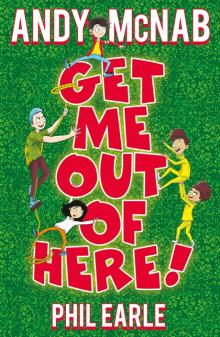 Get Me Out of Here!
Get Me Out of Here!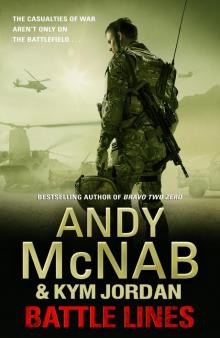 Battle Lines
Battle Lines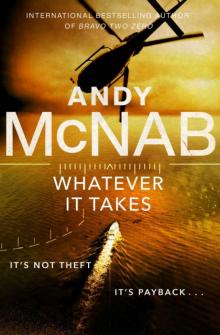 Whatever It Takes
Whatever It Takes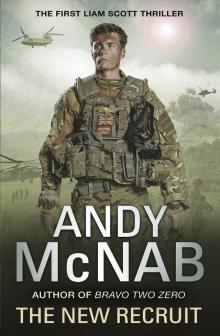 The New Recruit
The New Recruit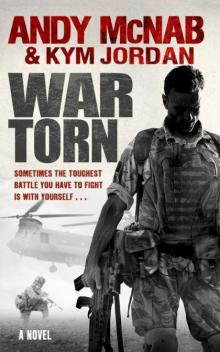 War Torn
War Torn Brute Force
Brute Force Crossfire
Crossfire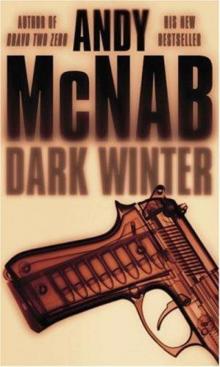 Dark Winter ns-6
Dark Winter ns-6 The Grey Man
The Grey Man Spoken from the Front
Spoken from the Front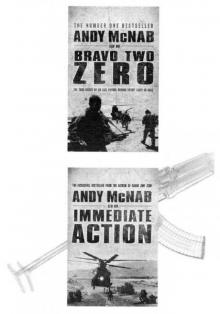 Meltdown
Meltdown Recoil
Recoil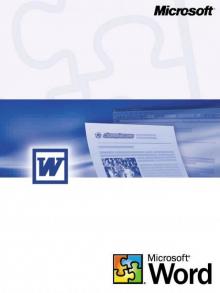 Nick Stone 1 - Remote Control.
Nick Stone 1 - Remote Control.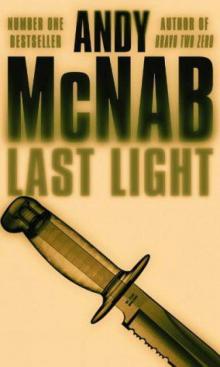 Last Light ns-4
Last Light ns-4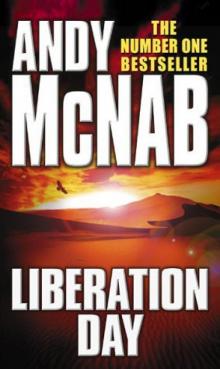 Liberation day
Liberation day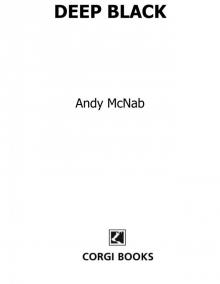 Deep Black
Deep Black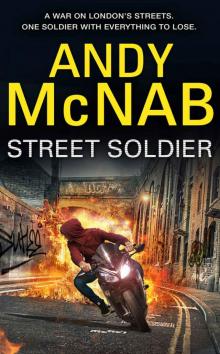 Street Soldier
Street Soldier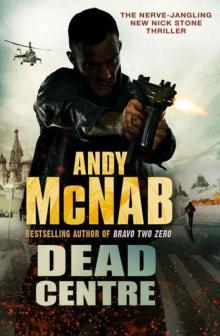 Dead Centre ns-14
Dead Centre ns-14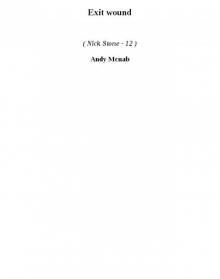 Exit wound ns-12
Exit wound ns-12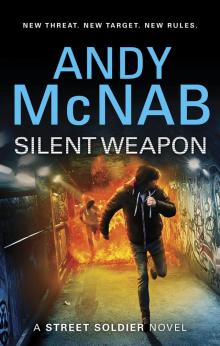 Silent Weapon
Silent Weapon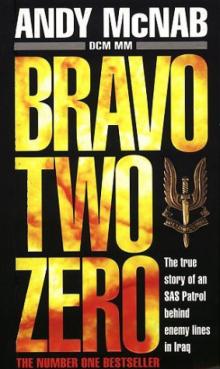 Bravo two zero
Bravo two zero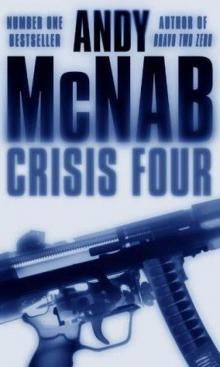 Crisis Four ns-2
Crisis Four ns-2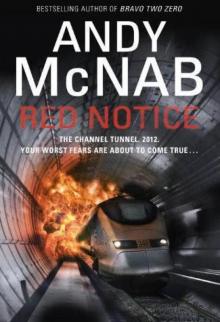 Red Notice
Red Notice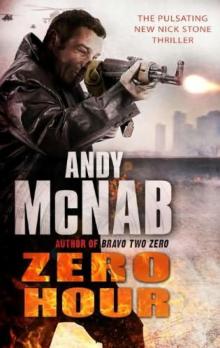 NS13 Zero Hour
NS13 Zero Hour Firewall
Firewall Last Light
Last Light Aggressor
Aggressor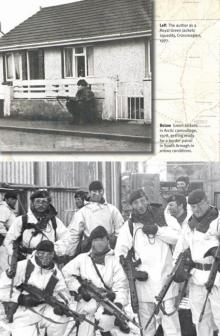 Seven Troop
Seven Troop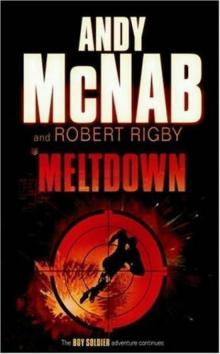 Meltdown bs-4
Meltdown bs-4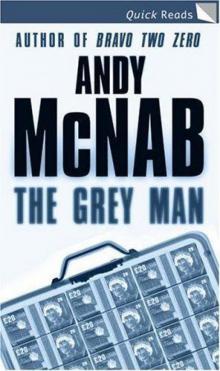 The Grey Man (quick reads)
The Grey Man (quick reads)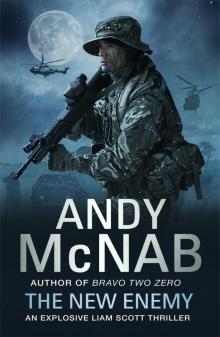 The New Enemy
The New Enemy Avenger
Avenger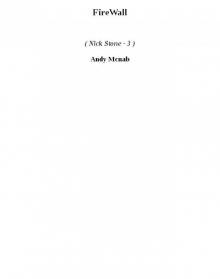 FireWall ns-3
FireWall ns-3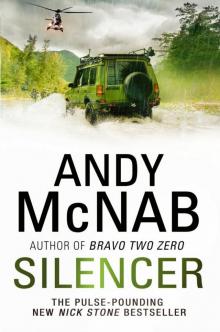 Silencer
Silencer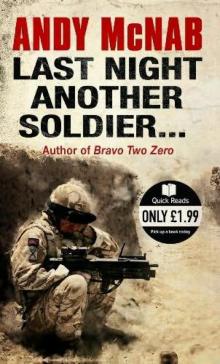 Last Night-Another Soldier…
Last Night-Another Soldier…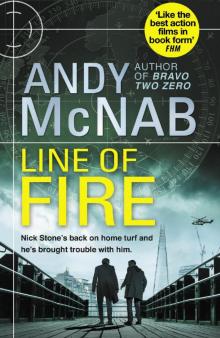 Line of Fire:
Line of Fire: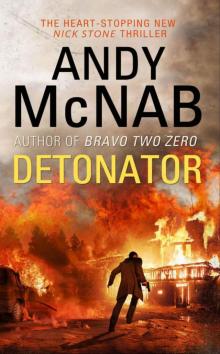 Detonator
Detonator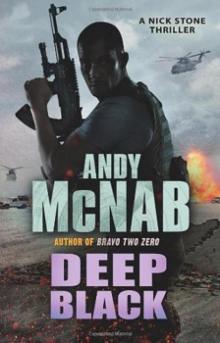 Deep Black ns-7
Deep Black ns-7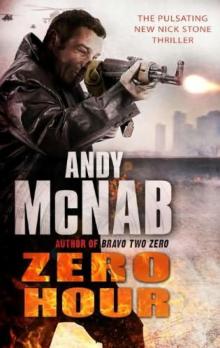 Zero Hour (2010) ns-13
Zero Hour (2010) ns-13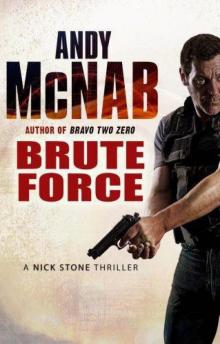 Brute Force ns-11
Brute Force ns-11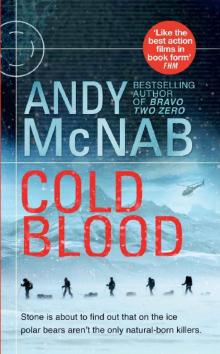 Cold Blood
Cold Blood Terminal Velocity
Terminal Velocity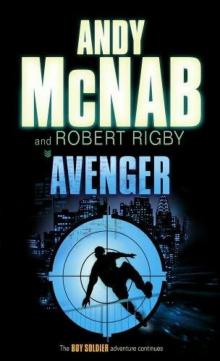 Avenger bs-3
Avenger bs-3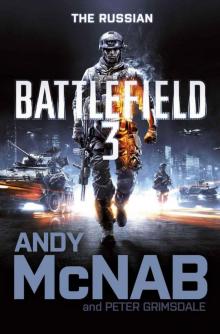 Battlefield 3: The Russian
Battlefield 3: The Russian DropZone
DropZone Zero Hour
Zero Hour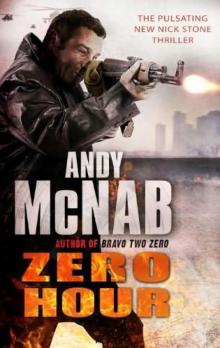 NS13 Zero Hour (2010)
NS13 Zero Hour (2010)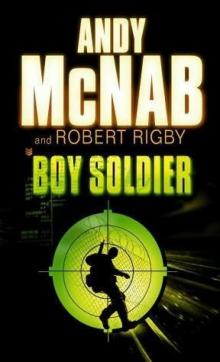 Boy soldier bs-1
Boy soldier bs-1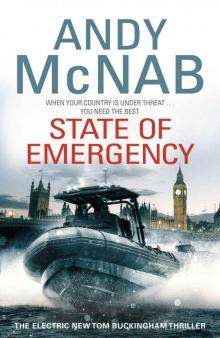 State Of Emergency: (Tom Buckingham Thriller 3)
State Of Emergency: (Tom Buckingham Thriller 3)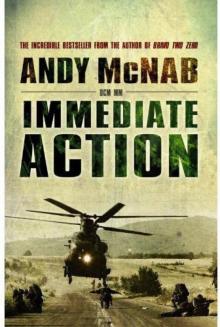 Immediate Action
Immediate Action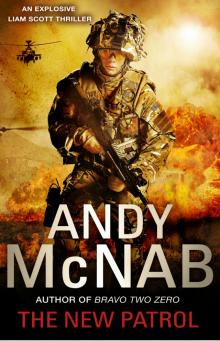 The New Patrol
The New Patrol Crisis Four
Crisis Four Boy Soldier
Boy Soldier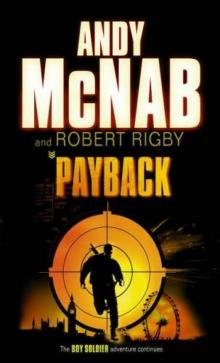 Payback bs-2
Payback bs-2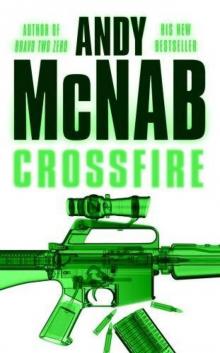 Crossfire ns-10
Crossfire ns-10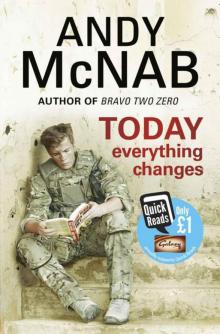 Today Everything Changes: Quick Read
Today Everything Changes: Quick Read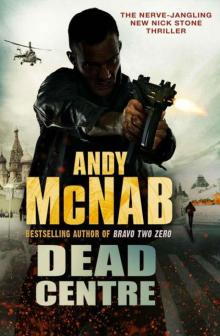 Dead Centre
Dead Centre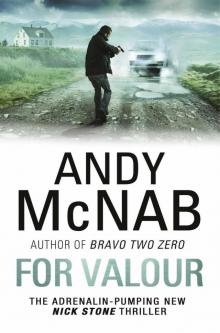 For Valour
For Valour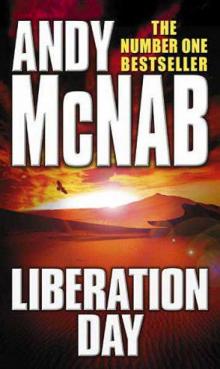 Liberation Day ns-5
Liberation Day ns-5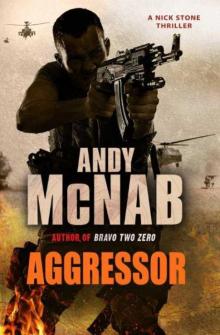 Aggressor ns-8
Aggressor ns-8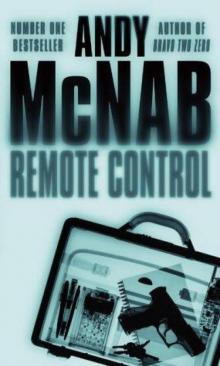 Remote Control ns-1
Remote Control ns-1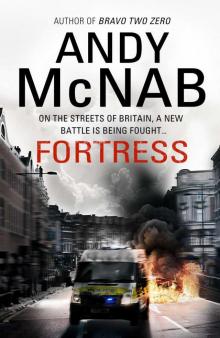 Fortress
Fortress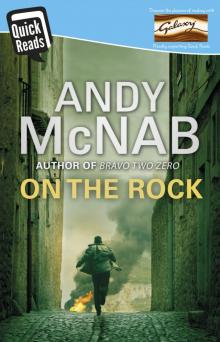 On the Rock
On the Rock Dark Winter
Dark Winter